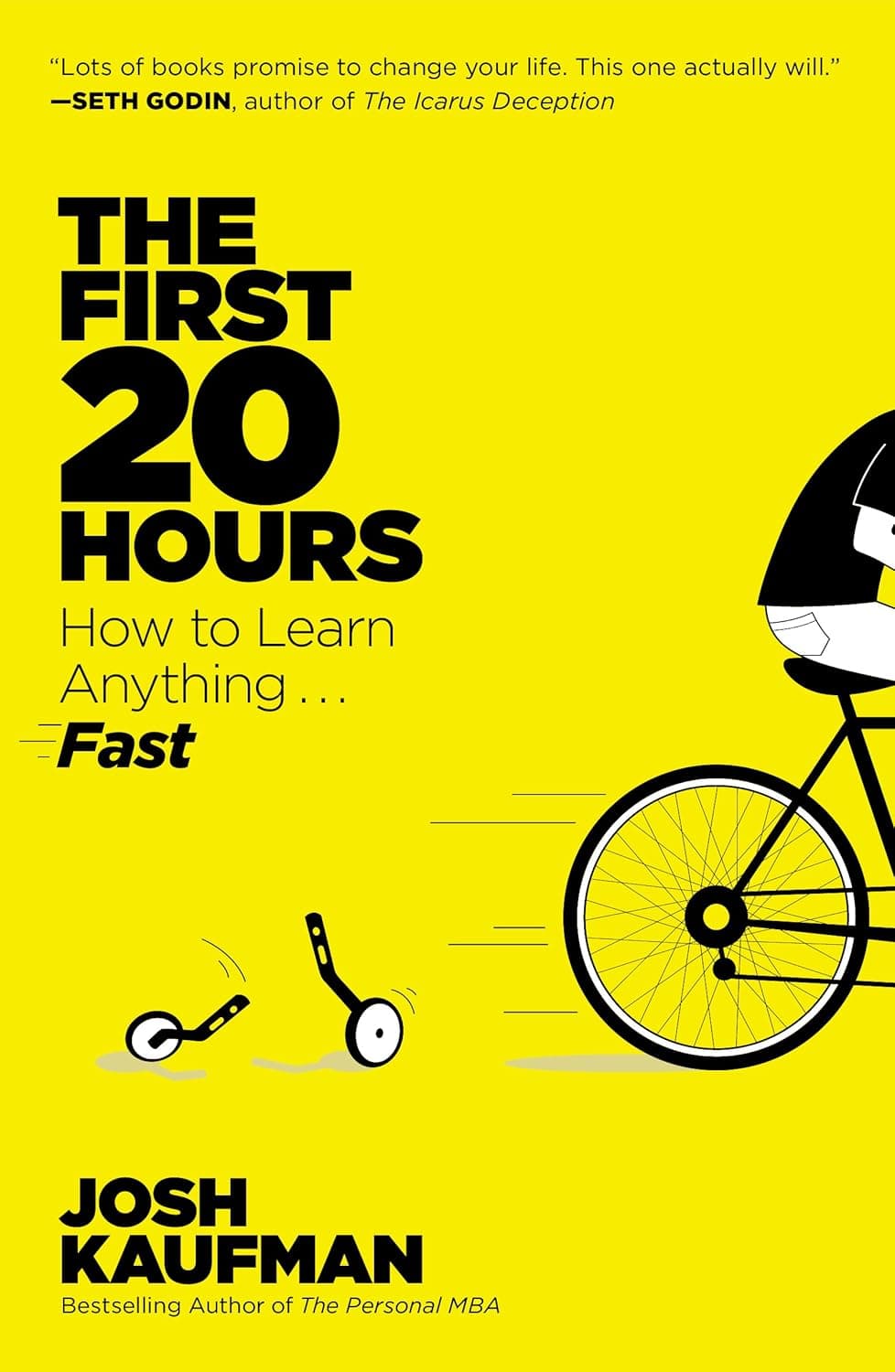
The First 20 Hours
By: Josh Kaufman
Category: Learning
Finished:
Highlights
Rapid skill acquisition has 4 steps:
- Deconstructing a skill into the smallest possible sub-skills;
- Learning enough about each subskill to be able to practice intelligently and self-correct during practice;
- Removing physical, mental, and emotional barriers that get in the way of practice;
- Practicing the most important subskills for at least twenty hours.
If you want to get good at anything where real-life performance matters, you have to actually practice that skill in context. Study, by itself, is never enough.
Ten principles of rapid skill acquisition:
- Choose a lovable project.
- Focus your energy on one skill at a time.
- Define your target performance level.
- Deconstruct the skill into subskills.
- Obtain critical tools.
- Eliminate barriers to practice.
- Make dedicated time for practice.
- Create fast feedback loops.
- Practice by the clock in short bursts.
- Emphasize quantity and speed.
Pick one, and only one, new skill you wish to acquire. Put all of your spare focus and energy into acquiring that skill, and place other skills on temporary hold.
I recommend making time for at least ninety minutes of practice each day by cutting low-value activities as much as possible.
Practice in 20 minute bursts (this is categorically false according to better research I’ve read, I’m including it as an example of the flaws of this book)
Skill is the result of deliberate, consistent practice, and in early-stage practice, quantity and speed trump absolute quality. The faster and more often you practice, the more rapidly you’ll acquire the skill. (Important to know that this is only true at the beginning, skill improvement requires careful practice)
In that spirit, here are the ten major principles of effective learning:
- Research the skill and related topics.
- Jump in over your head.
- Identify mental models and mental hooks.
- Imagine the opposite of what you want.
- Talk to practitioners to set expectations.
- Eliminate distractions in your environment.
- Use spaced repetition and reinforcement for memorization.
- Create scaffolds and checklists.
- Make and test predictions.
- Honor your biology.
Spaced repetition is dope (see Anki)
Scaffolds are structures that ensure you approach the skill the same way every time. Think of the basketball player who establishes a pre– free throw routine. Wipe hands on pants, loosen the shoulders, catch the ball from the ref, bounce three times, pause for three seconds, and shoot. That’s a scaffold.The optimal learning cycle appears to be approximately ninety minutes of focused concentration. Any more, and your mind and body will naturally need a break.

